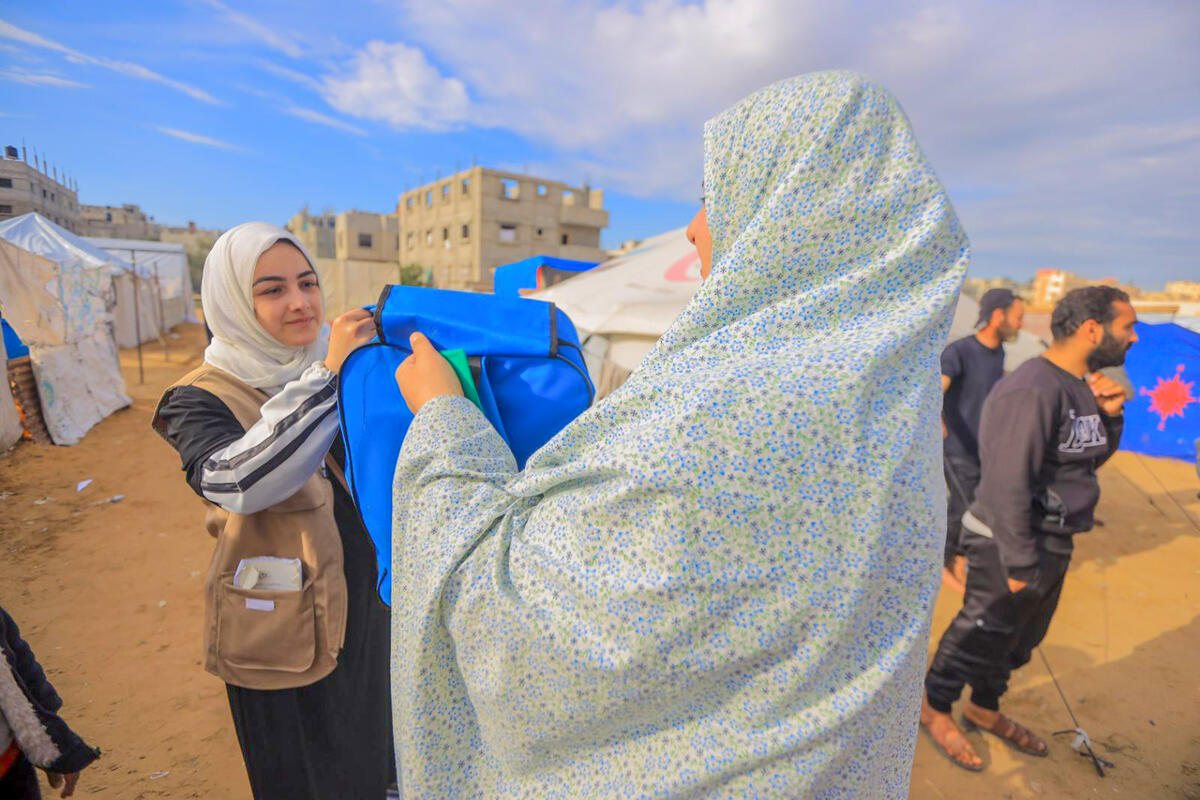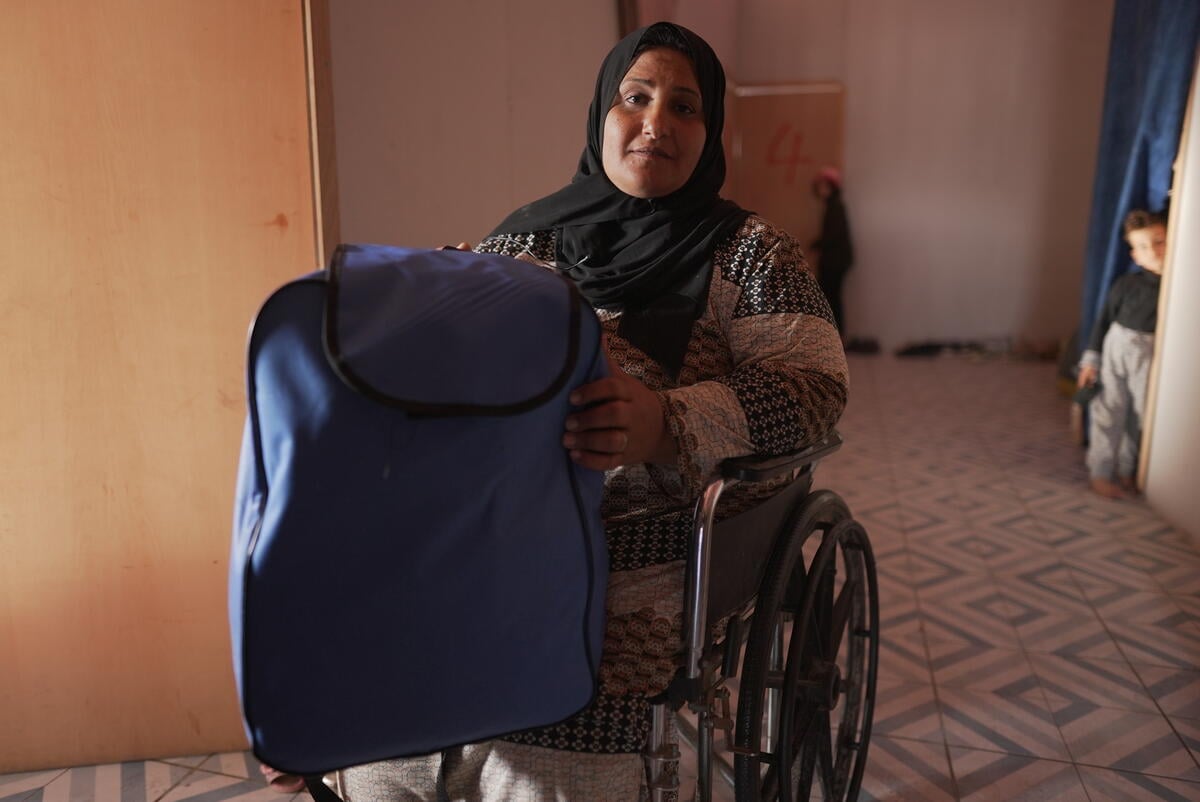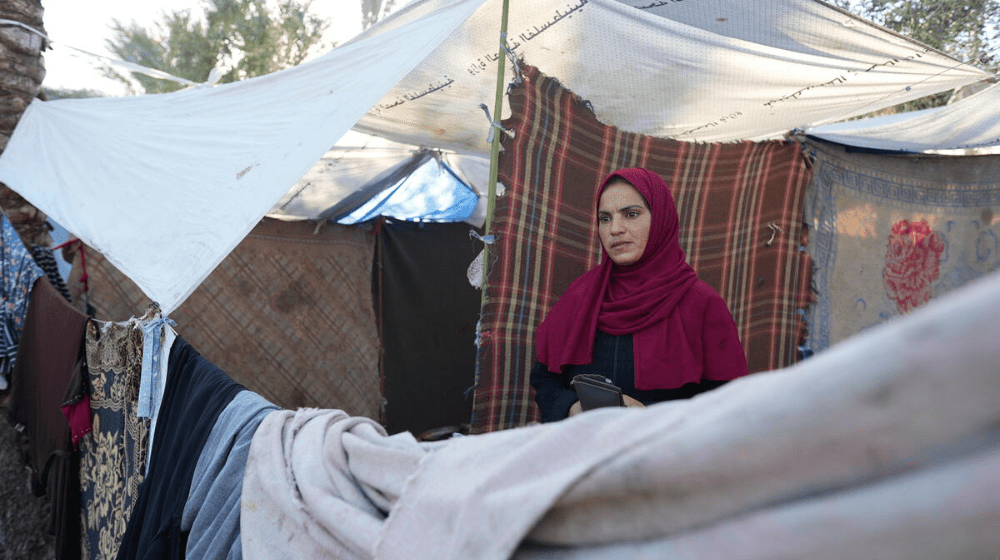“I cut out a piece of cloth to use as a sanitary pad, and my daughter tells me, ‘Mama, we can't do this!’ But what else can I do?’” says Bakiza Mohamed Abdel Rahman Nasrallah, 47, in Rafah.
Around one million women and girls in Gaza have now been displaced.
Forced to seek refuge in overcrowded shelters and settlements where there is just one toilet for every 850 people, and just one shower for every 3,600 people, their plight marks an appalling negation of human needs, human rights and human dignity, let alone the rising risk of infection.
“I have just one pair of underwear now,” says Aisha,* from Rafah. “Every day I have to wash them with dirty water and use them all over again.”
A critical shortage of menstrual pads is compounding the eight months-long misery of the estimated 690,000 menstruating women and girls in Gaza.
“I wish I could have my own toilet back, even just for 10 minutes,” Fatima,* a young girl from Gaza, tells UNFPA.
Close to three-quarters of women and girls in Gaza say they have no privacy to wash, with the same number reporting having no access to clean water.

“I kept asking my husband if we could go to one of his friends’ houses to use their bathroom, because my girls needed to shower,” says Nour* in Rafah. “I have two daughters... you can’t possibly imagine how difficult and embarrassing the situation was.”
UNFPA has distributed 24,500 dignity and menstrual hygiene kits to hospitals and partners for women and girls in Gaza since October 2023, and more than 3.6 million disposable pads.

Yet vital hygiene kits, menstrual pads, and reproductive health medicines and supplies have been stuck in Jordan since April, as access to crucial sexual and reproductive health services in Gaza becomes even more constricted with not a single medical facility in Gaza fully operational.
“Access to essential items and services that people need to survive, including food, water, shelter, and quality menstrual hygiene supplies and health services, is a human right. Dignity can never be an afterthought, and women and girls must be protected, upheld, and respected everywhere, at all times.” says Laila Baker, UNFPA Arab States Regional Director.
UNFPA is appealing for $90 million to address the most pressing needs of women and girls in Gaza and the occupied West Bank from January to December 2024. As of April 2024, US$25.5 million has been received. An additional $64.7 million is urgently needed to fully support UNFPA’s operational response until December 2024.
Name changed for privacy


